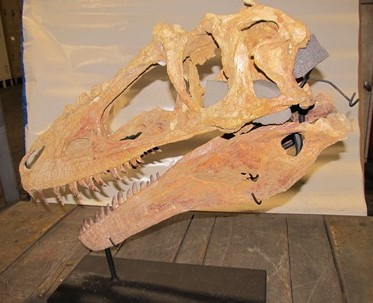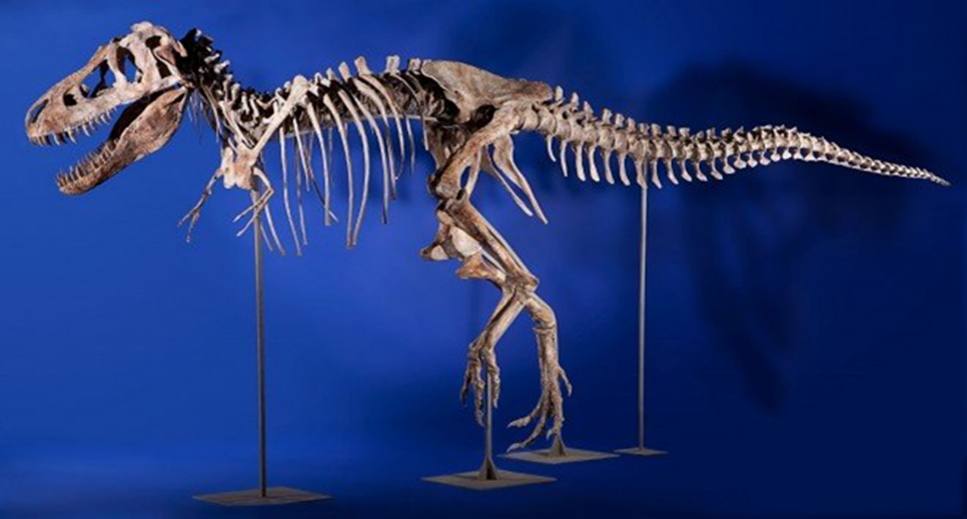On July 11, 2024, the U.S. Cultural Antiquities Task Force (CATF), coordinated by the U.S. Department of State, held a virtual training workshop for law enforcement officials from the United States to enhance their knowledge of paleontological resources and build their capacity to protect those materials by disrupting trafficking in them. Paleontological resources, especially dinosaur fossils, are highly prized among collectors. Unfortunately, aspects of the market are supported by illicit trade that relies on looting from dig sites and theft.
The training brought together 190 participants from Customs and Border Protection (CBP), the Federal Bureau of Investigation (FBI), Homeland Security Investigations (HSI), the National Park Service (NPS), the Department of State, the Smithsonian Institution, as well as international partners and representatives from U.S. universities and museums. U.S. law enforcement has successfully seized, investigated, and repatriated fossils and other paleontological resources that left countries such as Morocco, Mongolia, and China illegally. During this training, government officials and experts from academia presented on the geographic distribution of fossils, mechanisms of paleontological looting, the cultural significance of paleontological materials, and laws applicable to fossil trafficking. Participants also heard from and engaged with speakers from communities negatively affected by paleontological trafficking.This training was the ninth in an online series of anti-trafficking workshops supported by the CATF and organized by the Smithsonian Institution’s Museum Conservation Institute and Office of Global Affairs, in collaboration with CBP, FBI, HSI, and NPS. These workshops support a whole-of-government approach and provide law enforcement with knowledge and capabilities to help identify, investigate, and prosecute some of the most-trafficked and vulnerable categories of cultural property.
Established at the direction of Congress and coordinated by the Department of State since 2004, the CATF comprises federal agencies that share a common mission to disrupt cultural property trafficking in the United States and abroad. Since its creation, the CATF has supported more than 100 domestic and international cultural property training programs. CATF is a law enforcement-focused subcommittee of the Cultural Heritage Coordinating Committee (CHCC). The CATF and CHCC are both managed by the State Department’s Cultural Heritage Center.




